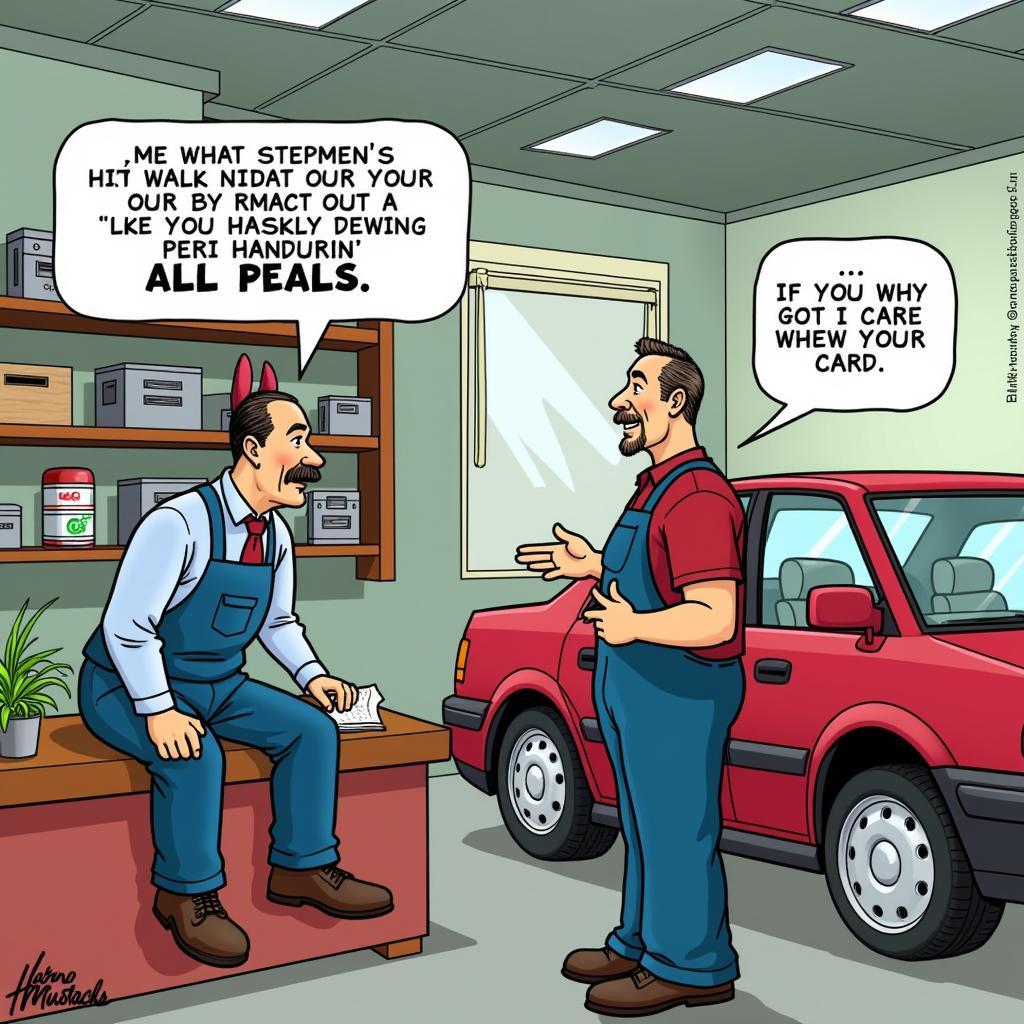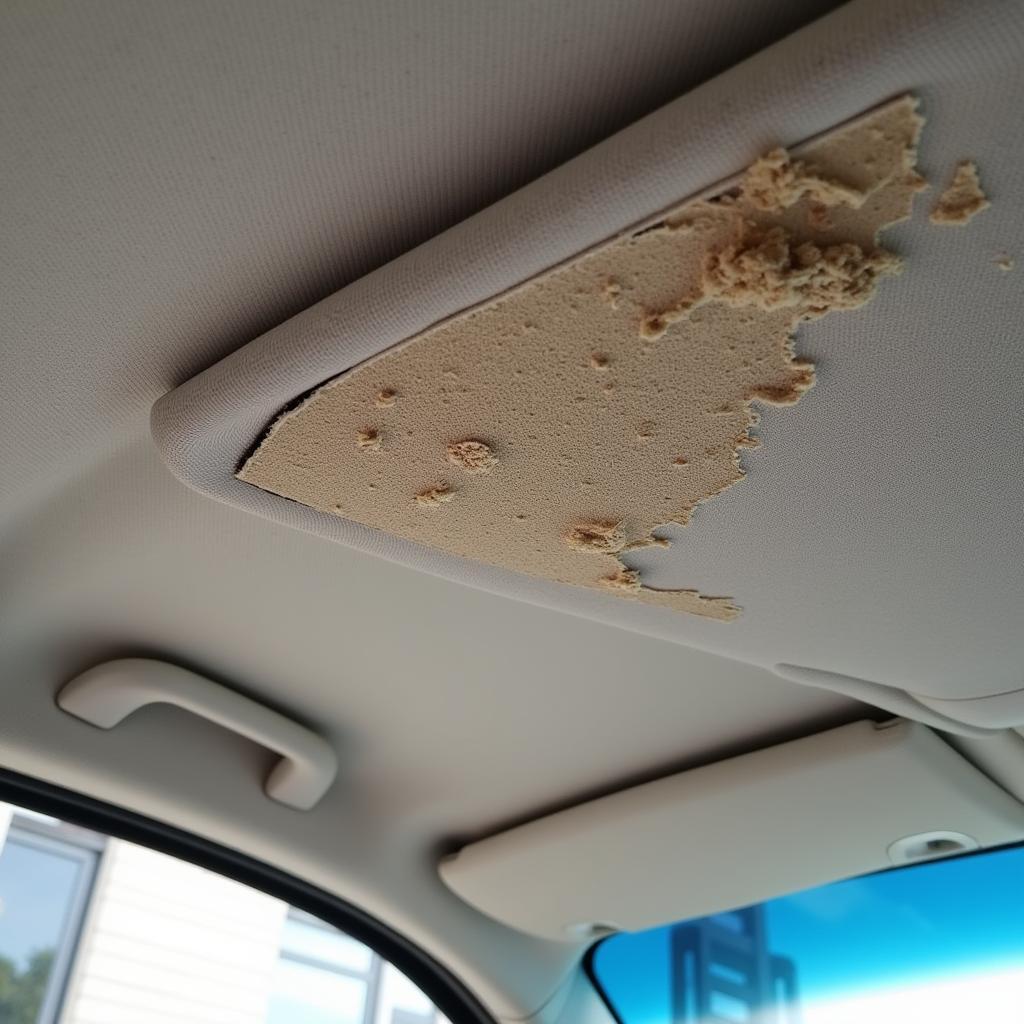A Car Amplifier Distortion Problem can quickly turn your enjoyable drive into a frustrating experience. This guide will explore the common causes of car amplifier distortion and offer practical solutions for diagnosing and fixing the issue, whether you’re a car owner, a mechanic, or a car audio enthusiast. Let’s dive in and get your car’s audio system back to its optimal performance.
Understanding Car Amplifier Distortion
Distortion manifests as unwanted changes in the audio signal, resulting in a crackling, buzzing, or muffled sound. Several factors can contribute to this problem, ranging from simple wiring issues to more complex problems within the amplifier itself. Identifying the root cause is crucial for effective troubleshooting.
Have you ever experienced a low volume issue with your subwoofer? Check out this helpful resource: car subwoofer low volume problem.
Common Causes of Distortion
- Incorrect Gain Settings: Improperly adjusted gain settings are often the culprit. Setting the gain too high can overload the amplifier, leading to clipping and distortion.
- Wiring Problems: Loose or corroded connections, inadequate grounding, or using the wrong gauge wire can all introduce noise and distortion into the audio signal.
- Speaker Issues: Damaged or blown speakers can also cause distortion, especially at higher volumes. A torn speaker cone or a damaged voice coil can create unwanted vibrations and sounds.
- Low-Quality Input Signal: A weak or distorted signal from the head unit can be amplified by the amplifier, resulting in audible distortion.
- Faulty Amplifier: Internal problems within the amplifier itself, such as damaged components or overheating, can cause persistent distortion.
- Overloaded Amplifier: Pushing the amplifier beyond its power limits can result in distortion and potentially damage the amplifier or speakers.
Troubleshooting Car Amplifier Distortion: A Step-by-Step Guide
Checking the Gain Settings
Start by checking the gain settings on your amplifier. Ensure they are properly adjusted to match the output of your head unit and the sensitivity of your speakers. Too much gain is a common source of distortion.
Inspecting the Wiring
Thoroughly inspect all wiring connections, including power, ground, and speaker wires. Look for loose, corroded, or damaged wires. Ensure the ground connection is secure and free of paint or rust.
Testing the Speakers
Test your speakers individually to rule out any issues. You can do this by connecting them directly to another known working amplifier or using a multimeter to check for continuity.
Evaluating the Input Signal
Verify the input signal from your head unit is clean and strong. Connect a different audio source to the amplifier to determine if the head unit is the source of the problem.
Are you experiencing other issues with your car stereo? Visit this page for troubleshooting advice: car stereo problem.
Checking the Amplifier
If all other components check out, the amplifier itself might be faulty. Look for signs of overheating or any visible damage. Consider having the amplifier professionally tested if you suspect an internal problem.
Car Amplifier Distortion: Expert Insights
“A common mistake people make is setting their gain too high, thinking it will make their system louder. This often leads to clipping and distortion, degrading the sound quality.” – John Smith, Automotive Electrical Engineer
“Don’t underestimate the importance of a solid ground connection. A poor ground can introduce noise and distortion into the system, even if all other connections are perfect.” – Jane Doe, Certified Mobile Electronics Installer
Conclusion
A car amplifier distortion problem can be frustrating, but with a systematic approach, you can often identify and fix the issue yourself. By following the steps outlined in this guide, you can restore your car’s audio system to its pristine sound. If you’re experiencing a car amplifier distortion problem and need professional assistance, reach out to us at AutoTipPro. Our contact information is: Phone: +1 (641) 206-8880. Office: 500 N St Mary’s St, San Antonio, TX 78205, United States.
Encountering feedback issues with your car subwoofer? This article can help: car subwoofer feedback problem.
FAQ
- What is car amplifier distortion? Car amplifier distortion is an unwanted alteration of the audio signal, resulting in crackling, buzzing, or muffled sound.
- How do I fix amplifier distortion? Start by checking gain settings, wiring, speakers, and input signal. If these are fine, the amplifier itself might be faulty.
- Can a bad ground cause amplifier distortion? Yes, a poor ground connection can introduce noise and distortion.
- What are the signs of a blown car speaker? A blown speaker may produce distorted or muffled sounds, or no sound at all.
- What if I’ve tried everything and the distortion persists? If troubleshooting doesn’t resolve the issue, consult a professional car audio technician.
- Is it safe to drive with a distorted amplifier? While generally safe, persistent distortion can be distracting and may indicate a more serious electrical issue.
- How can I prevent amplifier distortion in the future? Proper gain settings, regular wiring checks, and avoiding overloading the amplifier can help prevent distortion.
Have you experienced problems with your Sony Xplod car stereo? Check this out: sony xplod car stereo problems.
Are you having trouble with your JVC car stereo KV 850? Here is a helpful resource: problems with jvc car stereo kv 850.






Leave a Reply